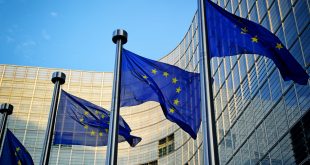Brussels-based industry trade body The European Gaming and Betting Association (EGBA) has warned the European Union and UK government that current Brexit arrangements carry operational and business concerns for the online gambling sector.
Though the UK and EU settled on a post-Brexit trade agreement, the EGBA has stated that the terms and conditions fall short of safeguarding online gambling, mirroring concerns of wider digital sectors.
In particular, the EGBA highlights industry concerns on data flow management, where the UK and EU must settle on a long-term reciprocal arrangement to maintain current operating standards.
“While there is an interim agreement in place to continue data transfers between the two jurisdictions, this will expire in less than 6 months’ time and there is no certainty as to what will happen next,” the EGBA communicated in its statement.
Failure to manage data-flows, will reveal a host of complications for online gambling firms and their value chain suppliers, which will come to light in the short term future.
A further concern is raised on whether the UK will continue to abide and enforce its digital companies to comply with the data storage and user privacy terms of the EU GDPR regulation.
EGBA, Secretary-General Maarten Haijer underlined that cross-border data rules and management had become the ‘most concerning outstanding issue of Brexit’.
Haijer warned that EU and UK had to guarantee alignment given the vast number of digital enterprises transacting between the two jurisdictions.
“Without a long-term agreement which secures the smooth flow of data, online gambling companies who operate in both jurisdictions would need to decide, among other things, where best to locate their data hubs to ensure as little disruption as possible to their everyday operations,” said Haijer.
“Irrespective of any future agreement on data flows between the two jurisdictions, we encourage any UK-based company which wishes to continue operating in the EU to sign up to EGBA’s code of conduct on data protection as a means to demonstrate they are fully compliant with GDPR.”










